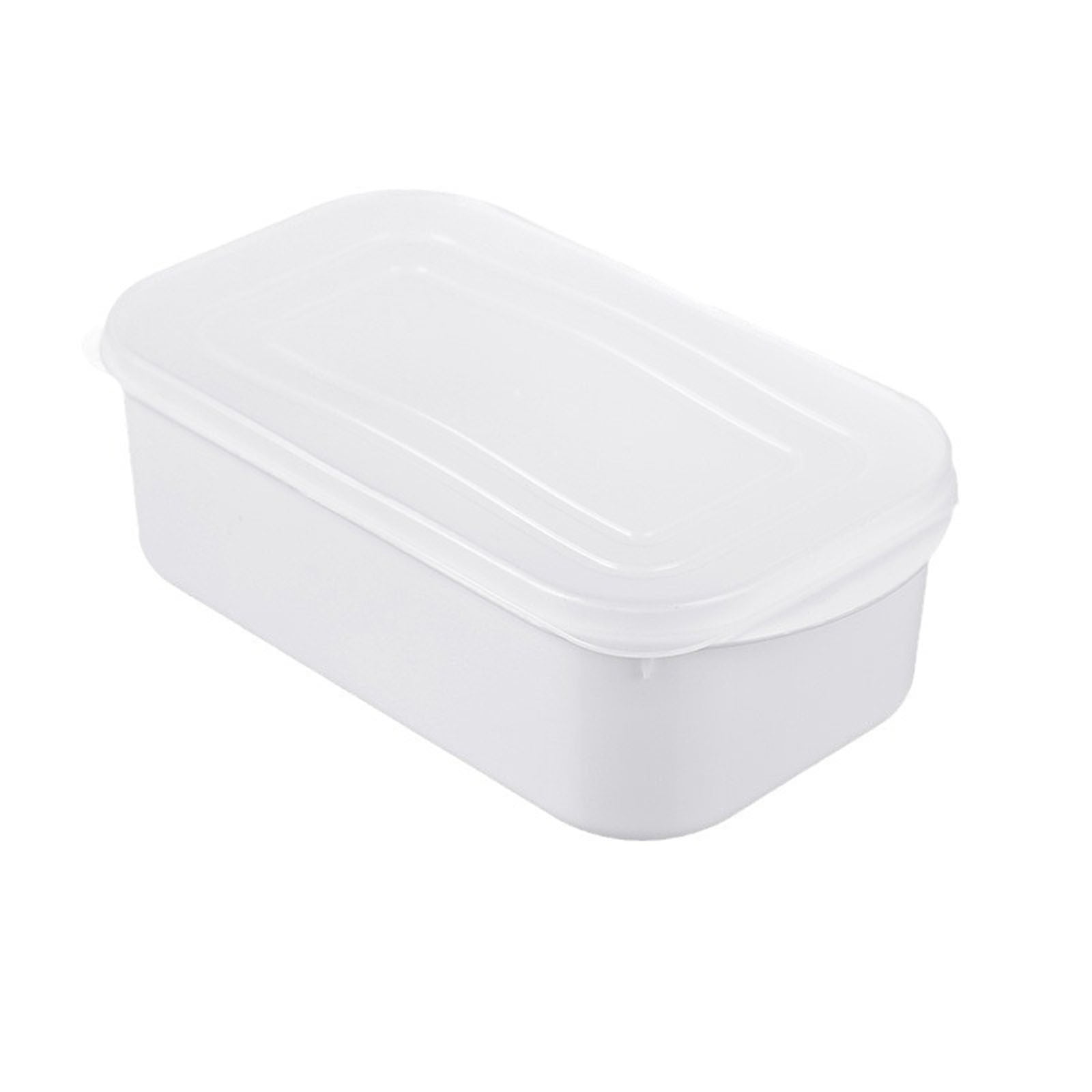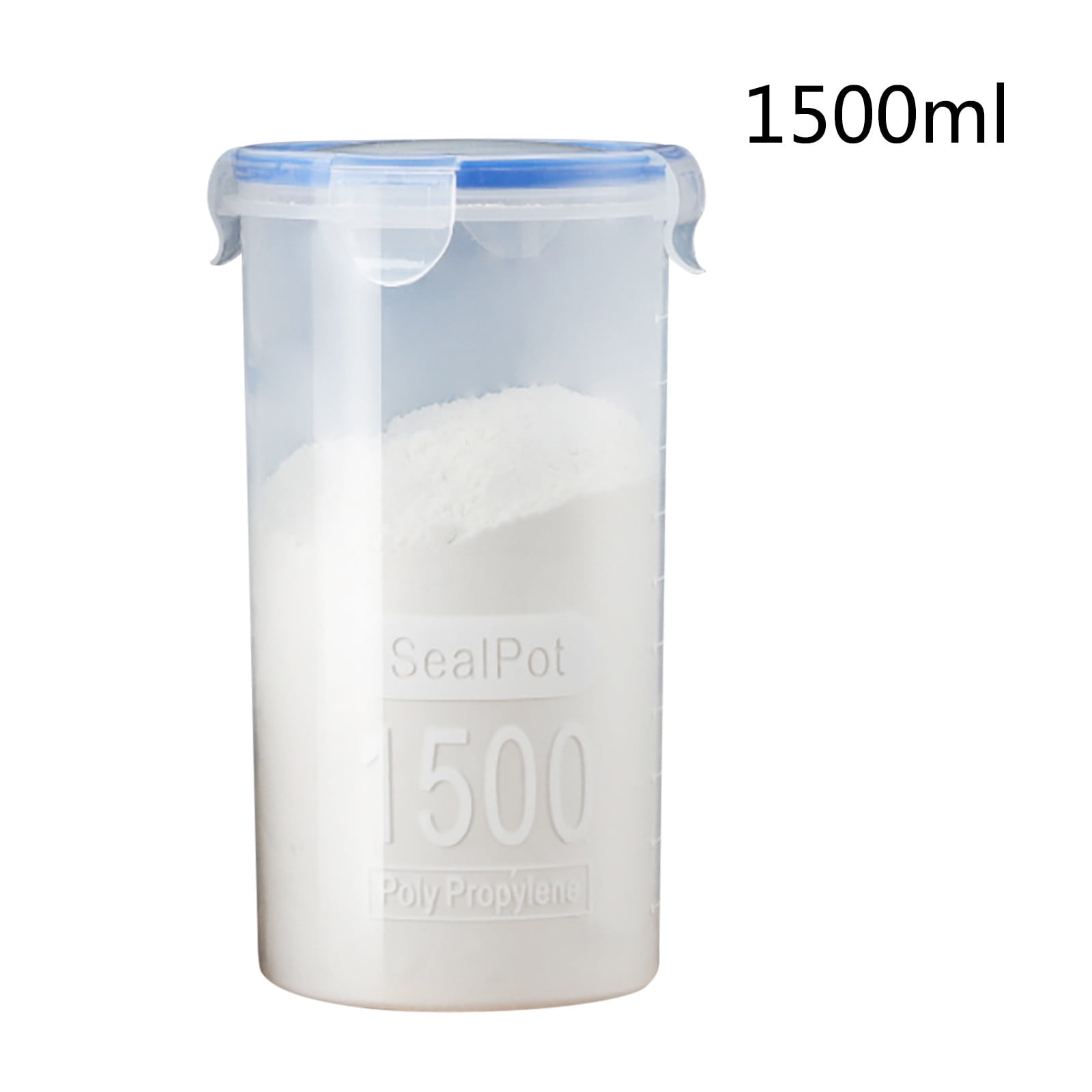Discover efficient ways to organize goods with plastic bulk containers
Wiki Article
The Function of Bulk Plastic Containers in Effective Recycling Practices and Sustainability
Mass plastic containers are integral to modern recycling initiatives. Their layout boosts the efficiency of product collection and transport, adding to sustainability objectives. These containers not only optimize room but additionally help in keeping track of contamination degrees. Their implementation is not without difficulties. Understanding the full scope of their effect discloses a complicated connection between logistics and environmental responsibility that calls for additional exploration.Understanding Mass Plastic Containers
Mass plastic containers serve as an important component in numerous markets, assisting in the storage and transport of items. These containers are normally made from robust products such as high-density polyethylene (HDPE) or polypropylene, which offer toughness and resistance to environmental aspects. Their layout commonly consists of attributes like stackability and modularity, enabling for efficient usage of area throughout both storage and transit.Industries such as agriculture, food processing, and producing frequently make use of bulk plastic containers because of their light-weight nature and convenience of handling. The containers come in various sizes and arrangements, accommodating the details demands of different items. Their adaptability extends beyond mere capability; they can also be tailored with covers, deals with, and classifying alternatives to boost use - Bulk Plastic Containers. Because of this, bulk plastic containers play a vital role in enhancing logistics and supply chain operations throughout numerous sectors, thereby contributing to total effectiveness and cost-effectiveness
Benefits of Making Use Of Mass Plastic Containers in Recycling
When organizations focus on reusing initiatives, the application of bulk plastic containers significantly enhances the effectiveness of the procedure. These containers are designed to enhance area, permitting for the storage and transport of bigger amounts of recyclable products. This leads to fewer trips to reusing facilities, consequently decreasing fuel consumption and connected discharges.In addition, mass plastic containers are immune and long lasting to various ecological factors, ensuring that materials continue to be safeguarded throughout handling and transportation. Their light-weight design better contributes to decrease transportation expenses.
Moreover, the harmony of these containers facilitates far better sorting and handling of recyclable products, which can improve overall recycling rates - Bulk Plastic Containers. Organizations that embrace bulk plastic containers likewise demonstrate a commitment to sustainability, favorably influencing their brand picture. Ultimately, these advantages not just enhance recycling practices however also contribute to more comprehensive ecological goals
Just How Bulk Plastic Containers Facilitate Material Collection
Efficient product collection is considerably boosted by the use of bulk plastic containers, as they give a efficient and structured solution for gathering recyclable things. These containers are created to accommodate large quantities of materials, which simplifies the sorting and storage space process. Their stackable layout optimizes space utilization, making it much easier for facilities to arrange recyclables without mess.Additionally, bulk plastic containers are weather-resistant and resilient, permitting outdoor placement without destruction. This durability assures that materials continue to be secured up until they are accumulated for processing.

The harmony in size and form of these containers facilitates standardization across collection factors, enabling better tracking of recyclable quantities. Their clear nature enables for easy visibility of materials, aiding in the monitoring of contamination degrees and guaranteeing that only proper materials are gathered. On the whole, bulk plastic containers play a crucial duty in streamlining the product collection procedure, thus promoting effective recycling methods.
Transportation Performance and Environmental Influence
Transportation effectiveness plays an important role in the recycling process, especially via the optimization of lots capability wholesale plastic containers. By maximizing the quantity of product moved, business can greatly lower the variety of trips required, consequently lessening their carbon footprint. This technique not only enhances operational effectiveness however also adds to more lasting environmental methods.
Maximizing Lots Capacity
Optimizing load ability is usually overlooked, it plays an important function in improving transportation performance and reducing ecological effect in reusing practices. By making the most of the quantity that bulk plastic containers can hold, reusing procedures can decrease the variety of trips required for transportation. This not only decreases gas usage but also reduces the deterioration on automobiles. Effective tons management allows centers to utilize room successfully, guaranteeing that each transportation cycle is as productive as possible. Furthermore, well-optimized loads can result try this in much better arrangements with logistics suppliers, potentially decreasing total prices. Inevitably, boosting tons capability adds to a more lasting reusing system by promoting reliable source usage and minimizing waste generated during transport.Decreasing Carbon Impact
As reusing operations endeavor to minimize their ecological impact, decreasing the carbon footprint related to transportation becomes a crucial objective. Mass plastic containers play a crucial duty in achieving this purpose by improving load efficiency and maximizing logistics. Their light-weight yet sturdy style permits maximum cargo space usage, minimizing the number of trips called for to move products. By combining shipments, recycling facilities can reduce fuel consumption and greenhouse gas exhausts. On top of that, strategically locating recycling facilities reduces transport ranges, furthermore lowering carbon outputs. Furthermore, utilizing fuel-efficient lorries and alternative energy resources enhances overall sustainability. By incorporating these practices, the reusing sector can significantly lessen its carbon footprint, contributing to a more sustainable future.Challenges in using Bulk Plastic Containers

Contamination Issues
Contamination issues stand for a considerable difficulty in the efficient use bulk plastic containers within reusing techniques. These containers frequently collect deposits from previous contents, causing combined materials that can prevent the recycling procedure. Pollutants such as food waste, chemicals, or non-recyclable materials can compromise the honesty of the whole set, resulting in raised disposal costs and lowered reusing rates. In addition, improper cleansing or sorting can aggravate these problems, making it difficult for reusing facilities to process materials effectively. The presence of impurities not only impacts the high quality of recycled items however additionally threatens the overall sustainability efforts targeted at decreasing plastic waste. Attending to these contamination difficulties is important for enhancing the effectiveness of bulk plastic container recycling.Recycling Infrastructure Limitations
Ineffectiveness in reusing framework postures significant difficulties for the reliable management of bulk plastic containers. Numerous recycling centers do not have the capability to refine huge volumes of these containers successfully, causing enhanced hold-ups and costs. Poor arranging technologies frequently lead to contamination, as bulk containers may be mixed with various other materials, making complex the recycling procedure. Restricted transportation options additionally prevent the motion of mass plastic containers to ideal recycling facilities, causing raised land fill waste. In addition, an absence of standard procedures for mass container recycling creates confusion amongst customers and companies, further making complex efforts to advertise sustainability. Resolving these framework limitations is necessary to improve recycling techniques and maximize the capacity of mass plastic containers in a round economy.Best Practices for Carrying Out Bulk Plastic Containers
They ought to focus on a tactical strategy that enhances effectiveness and decreases contamination threats when organizations think about applying mass plastic containers in their reusing techniques. Picking the appropriate container dimension and kind is necessary to suit the quantity of products being refined. Organizations needs to also establish clear labeling and signs to assist customers on correct disposal approaches, minimizing confusion and errors. Regular training sessions for personnel can even more strengthen these techniques, making certain everyone comprehends their duties in keeping reusing stability.
Additionally, companies need to apply a regular maintenance timetable to inspect and tidy containers, avoiding the buildup of pollutants. Partnering with regional reusing centers can likewise improve the collection process, ensuring that products are successfully processed. Companies should check and examine their reusing metrics, using this information to fine-tune techniques over time and advertise continuous renovation in their sustainability efforts.
The Future of Mass Plastic Containers in Lasting Practices
As organizations significantly prioritize sustainability, the duty of bulk plastic containers in recycling practices is established to develop significantly. Developments in materials scientific research are causing the development of biodegradable and recyclable alternatives, boosting the environmental benefits of bulk plastic containers. On top of that, the application of closed-loop systems will certainly enable easier collection and repurposing of these Learn More containers, minimizing waste and source consumption.Technical advancements, such as wise tracking systems, will certainly allow companies to check the lifecycle of bulk containers, improving efficiency in recycling procedures. As customer demand for sustainable practices grows, companies will likely take on mass plastic containers designed for reuse and long-term value. Furthermore, collaboration between sectors and governments will certainly foster the facility of standard recycling procedures, making certain that mass containers are effectively integrated into wider sustainability campaigns. Overall, the future of bulk plastic containers appears promising, with considerable capacity you could check here for adding to a round economic situation.
Regularly Asked Inquiries
How Are Bulk Plastic Containers Made and What Materials Are Used?
Bulk plastic containers are commonly made from high-density polyethylene (HDPE) or polypropylene (PP) These products are refined through injection molding or strike molding methods, leading to resilient, lightweight containers suitable for various storage and transportation requirements.
Can Mass Plastic Containers Be Recycled Several Times Before Recycling?
Yes, bulk plastic containers can be recycled numerous times before recycling. Their sturdiness and design enable duplicated usage in different applications, advertising sustainability and source effectiveness while reducing the demand for brand-new containers.
What Certifications Exist for Bulk Plastic Containers in Recycling?
Numerous qualifications for mass plastic containers consist of the Recycling Collaboration's qualification, the Cradle to Cradle Licensed ™ criterion, and the Lasting Product packaging Coalition's standards, making sure containers meet certain environmental and recyclability criteria for efficient recycling.Just How Do Mass Plastic Containers Contrast to Various Other Recycling Storage Options?
Bulk plastic containers use greater sturdiness and capacity compared to other reusing storage options, minimizing the risk of contamination and assisting in reliable transportation. Their design sustains far better company, boosting general performance in reusing procedures.What Is the Lifespan of a Mass Plastic Container in Recycling Processes?
The life-span of a mass plastic container in recycling processes normally varies from 5 to 10 years, depending upon usage, material top quality, and ecological conditions, permitting multiple cycles of usage before eventual disposal or recycling.When organizations focus on reusing efforts, the use of mass plastic containers substantially improves the performance of the procedure. Transport performance plays an essential function in the reusing process, particularly through the optimization of load capability in bulk plastic containers. The usage of bulk plastic containers in reusing methods deals with significant challenges, especially worrying contamination concerns and constraints within reusing framework. Contamination concerns represent a substantial challenge in the efficient use of mass plastic containers within reusing techniques. When organizations take into consideration executing mass plastic containers in their reusing methods, they need to prioritize a calculated approach that improves performance and reduces contamination threats.
Report this wiki page